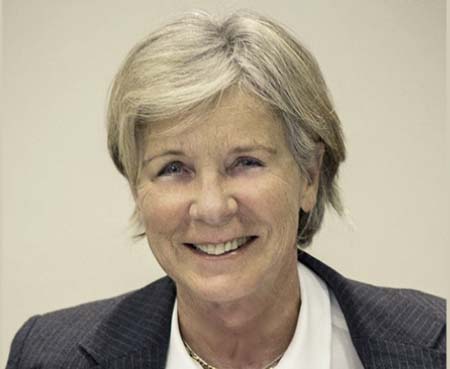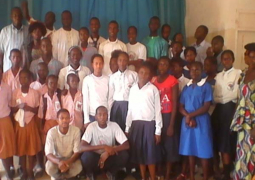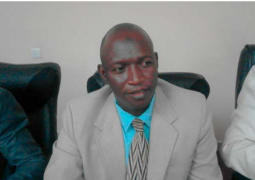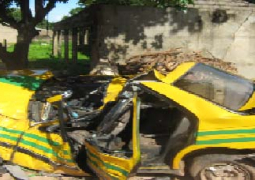
Press
release
The
Gambia should be commended for embarking on a national process of healing and
reconciliation, reversing its abusive legacy and bringing perpetrators to
account, says UN human rights expert Maud De Boer-Buquicchio, ending a mission
to the country.
She said the truth and reconciliation process
had created a real momentum and a much-needed space to break through the deeply
embedded culture of silence and stigma surrounding the issue of sexual abuse of
children, that until recently had largely been regarded as a private family
matter.
“Effective investigation and prosecution are
indispensable in curbing the culture of silence surrounding child sexual abuse
and commercial sexual exploitation,” said De Boer-Buquicchio, Special
Rapporteur on the sale and sexual exploitation of children, presenting a
preliminary statement at the end of her visit.
“However, despite the welcome progress,
societal barriers, such as stigma and shame, poverty, lack of awareness or
ignorance of laws continue to feed the culture of silence and inhibit the
reporting of cases,” she said.
“The rare instances when complaints are lodged
with the police are not duly acted upon, the gathering of compelling evidence
is delayed, and investigation and prosecution is stalled, resulting in victims
or witnesses withdrawing their complaints. Some cases have also reportedly been
dismissed on the grounds that statements by child victims were allegedly
inconsistent.”
The Special Rapporteur said that despite
commendable legislative and significant awareness-raising efforts, she was
concerned that no one involved in the sale, sexual abuse or exploitation of
children or in human trafficking, was known to have been prosecuted or
convicted. There were hardly any prosecutions and sentencing of practitioners
and promoters of child marriage and female genital mutilation (FGM), she added.
Child sexual exploitation is believed to be
most prevalent in the Gambia’s poorest areas, and in and around the Tourism
Development Area but the Special Rapporteur highlighted the need for
disaggregated data on the issue.
Although marriage in The Gambia is illegal
under the age of 18, customary and “personal laws” permit child marriages
before this age. Girls in rural areas are often disproportionately affected by
child marriage, the expert noted. Likewise, despite the explicit
criminalisation of FGM and campaigns to raise awareness, the practice
continues, especially in remote and cross-border areas.
De Boer-Buquicchio raised growing concern over
the vulnerability of children on the move, including those living and working
on the streets, refugees, asylum seekers, and stateless and undocumented
children. She also highlighted instances of forced begging, exploitation,
beating and other forms of abuse in religious teaching centres (Koranic
schools), denounced by civil society organisations.
She urged better reporting mechanisms,
including a free telephone “hotline” operating round the clock, and better
resourcing for the police force’s child welfare unit.
“Services for recovery and reintegrating
children victims are virtually non-existent in The Gambia,” said de
Boer-Buquicchio.
“I urge the Government to invest substantial
resources in strengthening frontline protection services and making
investigations more meaningful and child friendly. The Gambia has come a long
way to put in place impressive laws, policies and child protection structures.
Their strict and uncompromising enforcement is key in delivering results and
achieving societal changes children deserve.”
During her visit, de Boer-Buquicchio met
national and local Government officials, representatives of civil society,
development agents, children, and representatives of the tourism industry,
including hotel owners, tourist guides and taxi drivers.
The Special Rapporteur will present a
comprehensive report at a forthcoming session of the UN Human Rights Council.




